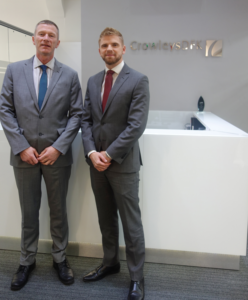
Budget 2020 was delivered by Finance Minister Paschal Donohoe today. Below we highlight the main changes that could affect you.
Climate Measures and Carbon Tax
- Benefit-in-kind on commercial vehicles to be linked to emissions from 2023.
- Emissions thresholds in respect of capital allowances and VAT reclaim on commercial vehicles to be reduced.
- 0% benefit-in-kind on electric vehicles will be extended until the end of 2020.
- A Carbon tax increase of €6 per tonne likely to result in an increase of about 2c per litre of petrol and diesel immediately and about €15 per tank of home heating oil from May 2020.
- Relief to be provided to hauliers through the Diesel Rebate Scheme for the increased cost of fuel.
- A new nitrogen oxide (NOx) surcharge will replace the 1% diesel surcharge and will apply to all passenger cars registered from 1 January 2020.
- VRT relief for hybrid vehicles will be extended until the end of 2020.
- The weekly fuel allowance will increase by €2.
Brexit Package
- A package of over €1.2 billion announced, excluding EU funding, to respond to Brexit. This includes:
- €220 million immediately on October 31st if a no-deal Brexit occurs.
- €110 million for the agriculture sector
- €40 million for the tourism sector
- €365 million for extra social protection expenditure in the event of a rise in unemployment
- €390 million for Brexit contingency expenditure
Personal Tax
- The reduced rate of Universal Social Charge for medical card holders to be continued until the end of 2020.
- Income tax bands and rates remain unchanged.
- The Home Carer Credit will increase from €1,500 to €1,600.
- The Earned Income Credit will increase from €1,350 to €1,500.
- Help to Buy Scheme will be extended until the end of 2021.
- Living City Initiative will be extended until the end of 2022.
Corporation Tax
- Confirmation of the 12.5% rate of tax.
- Special Assignee Relief Programme (SARP) and Foreign Earnings Deduction will be extended until the end of 2022.
- Enhancements to the Key Employee Engagement Programme (KEEP) and Employment and Investment (EII) programme announced.
- For micro and small companies:
- R&D Tax Credit to increase from 25% to 30%.
- R&D Tax Credit will now be available for certain pre-trading expenditure.
- The qualifying spend limit for R&D outsourced to third level institutions to be increased from 5% to 15% for R&D Tax Credit purposes.
- New Anti-Hybrid Rules will be introduced, in line with the Anti-Tax Avoidance Directive (ATAD).
- Transfer Pricing rules to be brought in line with OECD standards with effect from 1 January 2020.
- Anti-avoidance measures to be introduced to the IREF and REIT regimes with immediate effect.
Agri Measures
- Farm Restructuring Relief will be extended until the end of 2022.
Capital Gains Tax and Capital Acquisitions Tax
- Capital Acquisitions Tax and Capital Gains Tax remain at 33%.
- The threshold for capital acquisitions tax that applies to children receiving gifts or inheritances from their parents will increase by €15,000 to €335,000.
Other Measures
- The rate of stamp duty on non-residential property will increase from 6% to 7.5%.
- A new stamp duty charge of 1% will apply where a scheme of arrangement, in accordance with Part 9 of the Companies Act 2014, is used for the acquisition of a company.
- The rate of Dividend Withholding Tax to be increased from 20% to 25% from 1 January 2020 with further changes to the DWT regime to follow from 2021.
- The excise duty on a packet of 20 cigarettes is being increased by 50 cents with a pro-rata increase on other tobacco products.
- A new relief from betting duty and betting intermediary duty up to a limit of €50,000 per calendar year to be introduced.
Social Welfare
- The 100% Christmas bonus will be paid out in 2019.
- The Living Alone Allowance to be increased by €5 in 2020. Increases announced in the Qualified Child Payment of €3 for over 12s and €2 for under 12s.
- Free GP care will be extended to under-eights and free dental care to under-sixes.
- Prescription charges for the over 70s are to be reduced from €1.50 to €1 per item.
- There will be a reduction in the monthly threshold for the Drugs Payment Scheme from €124 to €114.
- Medical card income threshold for the over 70s to be increased by €50 to €550 for a single individual and by €150 to €1,050 for a couple per week.
For more information, please contact Eddie Murphy, Partner and Head of Tax Services.


